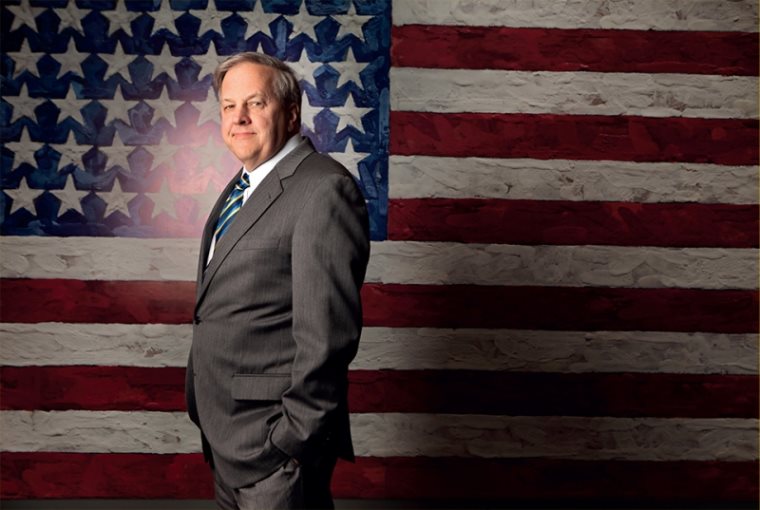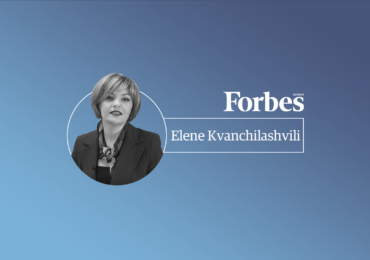The United States of America is waking up to a new reality. With President-elect Donald Trump, Americans now have a long journey of Republican-promised policy changes ahead of them. “If you can dream it, you can do it.” This famous quote from Walt Disney also rang true for the President-elect. This comes as sad news for millions of unauthorized immigrants because their ‘American dream’ just got ‘Trumped’. Meanwhile, thousands of kilometers away, the Georgian Dream was re-elected to serve a second term in office. What will and will not change in the diplomatic relations between the US and Georgia with newly-elected governments in both countries? His Excellency Mr. Ian C. Kelly, the U.S Ambassador to Georgia, has a firm answer to this: “The strong support for Georgia will continue.” In an exclusive interview with Forbes Georgia, Ambassador Kelly discusses everything from bilateral relations in terms of security and defense, to the economy and cultural advantages of the Technicolor country (so he recalls his first impression of Georgia) to Georgia’s incredible investment opportunities – he covers it all.
You are the eighth U.S Ambassador to Georgia. What was your primary motivation for continuing your diplomatic career in Georgia and did the country meet your expectations?
I first came to Georgia forty years ago. The country blew up my image of the Soviet Union as being monolithic because Georgia was extraordinary. There’s one American movie The Wizard of Oz, the first part of which is black and white, and then it changes to Technicolor. That’s what it was like for me to come to Georgia – it was like landing in a Technicolor land. People here seemed much more independent-minded, and open to foreigners. I was hooked. Since then, I have come back a few times. In the 1990s I had a visit to Georgia as a diplomat together with the delegation of the United States Agency for International Development (USAID), and it was not a very happy time for the country. There were power cuts and the needs of Georgia were very fundamental as the country had many IDPs.
The environment for Georgia is still challenging. Besides the economic issues, Georgia still faces security challenges, as twenty percent of its territory is under occupation. In addition, if you go to the south, Georgia is very close to probably the most unstable region in the world right now. Nevertheless, the country manages to overcome these challenges. Leaders of other countries in the region have drawn different conclusions from dealing with instability and have developed more of a vertical autocratic system, while Georgia has continued its way on a democratic path. Americans are very impressed by that, and that is why we have made such a large investment in this country, we have a very big program here to help Georgia.
We’re talking about the finances allocated by the U.S government for Georgia. What about the private sector? What are the challenges Georgia has to address in order to gain more interest from American investors?
Public awareness is the biggest problem. To know Georgia is to love Georgia. It holds true for tourists, for students like myself forty years ago, and it also holds true for businessmen. I encourage the Georgian government to try and highlight that Georgia is open for business. When the doing business and corruption ranking of Georgia’s neighboring countries go down, Georgia’s indicators go up. Sadly, chances are that the Americans who do know about Georgia, know about the country because of war, and they associate occupation with instability. There is a real need for more public awareness. Georgia’s biggest advantage is the country itself. What’s holding Georgia back is infrastructure. The Prime Minister is right, the country really needs to concentrate on developing its roads, airports, and the environment for tourism. Another competitive advantage of Georgia is bio food, and trade missions to the United States could probably help highlight Georgian products. I know that PM Kvirikashvili really wants Georgia to get the word out; he had a very interesting ‘Investment Roadshow‘ to the United States recently.
As far as getting the word out, how helpful would you say the job done by the American Chamber of Commerce in Georgia (AmCham) is in this regard?
AmCham has done a great job in promoting Georgia’s competitive advantages. Besides attracting investors, AmCham is constantly providing them with useful information, for example, how to set up a business in Georgia. It’s a matter of raising Georgia’s profile. That is the main tool for increasing American direct investment here.
Georgia is a small country and U.S businesses may be partially right saying they’re too big for us. Would you say promoting Georgia’s regional advantages would be a better approach to bringing American investors here?
One of the major advantages for Georgia is its location, it can be a regional platform for a lot of American businesses. That’s where we would like to see Georgia go. I think an important part to that would be human capital – in terms of an educated and trained workforce, which is the reason why we’ve invested USD 140 million into a science, technology, engineering and math (STEM) program. In this information age you need to have a really educated workforce.
Foreigners often use to say that Georgia looks better close-up, and maybe this is why we have the so called ‘emotional investors’. What can you say about institutional investors? Should we expect them anytime soon from the United States?
There are a lot of people like me who fall in love with this country and make emotional decisions, but there are objective reasons for foreign investors, including institutional investors, to put money into Georgia. It’s a mutual challenge to try and promote this country as the right place where you can do business.
Talks about a possible Free Trade Agreement between the U.S and Georgia have been ongoing. How actively is the political and economic section of the embassy involved in this issue?
That’s something I have to admit has been a kind of a personal frustration for me. I don’t know what the next administration’s policy is going to be regarding bilateral FTAs, but this administration has tended to take a multilateral approach to free trade agreements with the Transatlantic Trade Investment Partnership (TTIP). The point is that we’re going to do an agreement with the EU, and then other countries that have an association agreement with the EU can piggyback.
What about the newly-elected Georgian government?
I have a lot of respect for the Prime Minister. I think his priorities are our priorities. It’s important to ensure that the government governs inclusively and it does not use its power to further consolidate power. In other words, does not use its constitutional majority unilaterally. Because of the character of Giorgi Kvirikashvili, I don’t see this as a realistic risk. He’s a very gifted manager, he listens very well, and Georgia’s very lucky to have him.
What I love about the United States is how we empower people to pursue their dreams. One of the most important things any government can do is give people the opportunity to make dreams come true, and this is made possible by giving them access to education, and letting people live in an environment where justice prevails and the labor market is developed.
Last, but not least, what are the major tasks the US Embassy in Georgia will be implementing in the country over the upcoming years with you being the ambassador?
Our priority is to maintain the level of engagement that we have right now. I think the stakes for the US national interest have gone up in terms of what’s happening here in Georgia. This country is the regional leader in a number of areas. It will be really very important for us to support Georgia and its ability to maintain its sovereignty. Secretary Kerry has signed a memorandum of understanding for defense cooperation with Georgia, and we are going to pursue it by putting some programs in place to help the country with its self-defense. It’s also very important to have an educated workforce, as I’ve already mentioned, and the United States has robust exchange programs, and we would like to extend those.
It seems you’ve learned all the languages of the countries you’ve established job-related relations with. How are your Georgian skills?
One of the great perquisites of being a Foreign Service officer is that the State Department will pay you to learn a language when you are at the junior and mid-level ranges. Unfortunately, as you reach senior levels they don’t pay you. I have to admit Georgian is a very difficult language, and this is the actual reason why I don’t speak it. But it’s also true that learning new languages gets harder with time. I like to think of myself as a linguist, but I’ve really met my match with Georgian.












